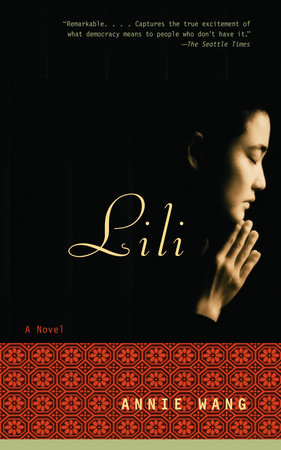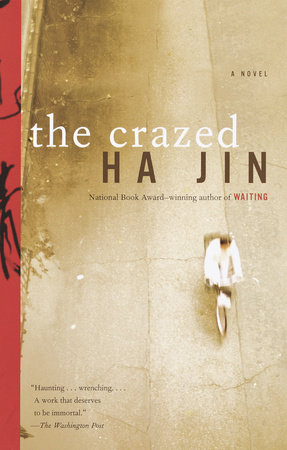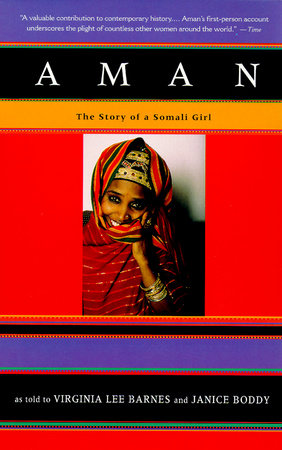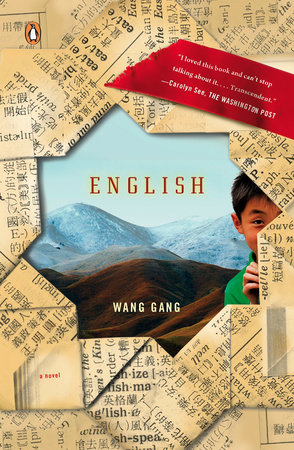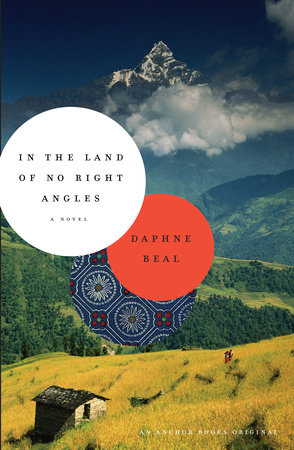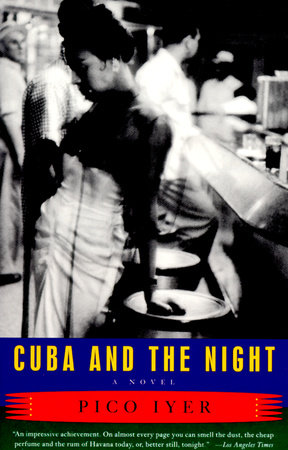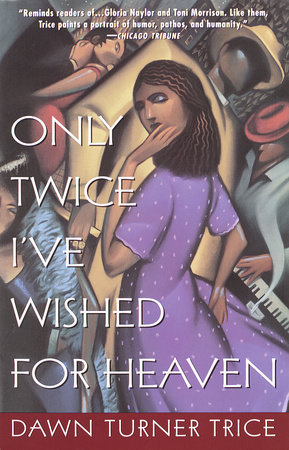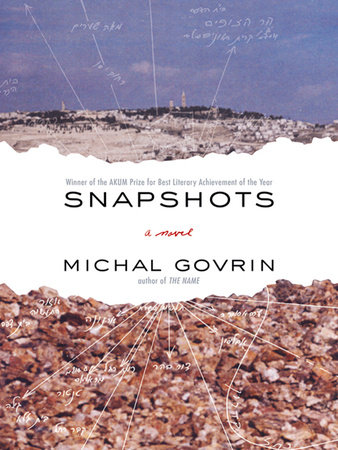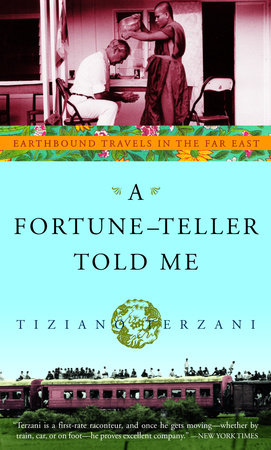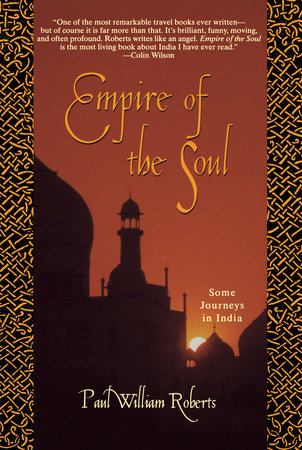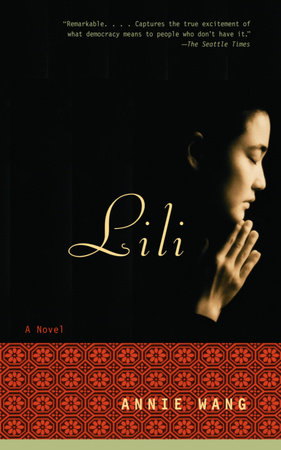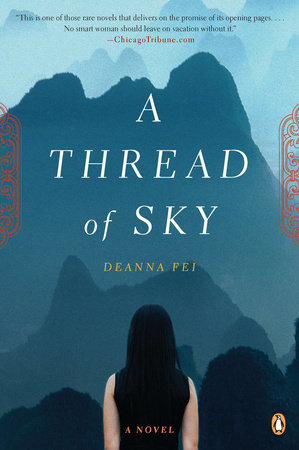Author Q&A
A Conversation with Annie Wang,
Author of LILI: A NOVEL OF TIANANMEN
Q:Annie, Let’s start with your own personal experiences: You grew up in Beijing, and witnessed the Tiananmen Square Uprising firsthand when you were only 16 years old. How has that experience influenced you? Your writing?
A:It’s quite dramatic. Unlike older generations of the Chinese, my generation didn’t suffer many political movements like the Great Leap Forward Movement or the Great Proletarian Cultural Revolution. We were not sent to labor camps or the countryside to be reeducated. We don’t have the memory of our homes being confiscated, our parents being beaten up by violent Red Guards. We grew up in a relatively peaceful era under Deng Xiaoping’s open door policy. Unlike those who were born in the 50s or early 60s, we, born in the 1970s, have received systematic education in physics, chemistry, biology, foreign language and world geography. We are more familiar with Beatles songs than revolutionary songs. Our idols are 007 and Elvis instead of the Chinese revolutionary martyrs. In a way, we are lucky, but we also lack the sense of responsibility that older generations have. We are more light-hearted and materialistic.
The Tiananmen Uprising is the only mass political movement that we have experienced. I was so fortunate to be in Beijing, near Tiananmen at that time. It was like being in Berkeley in the 60’s. I participated and witnessed the biggest civil rights movement in China. I see how the movement has affected the lives of my parents, my sisters, my friends, my family friends, etc. I am part of history and belong to something greater than myself. The feeling is great. It has awakened a lot of my senses; political sense and the yearning of freedom are among those. Without participating and witnessing the movement, I would be like a typical Chinese youth today who only cares about material things and has no interests in the political progress of China. Without what happened in 1989, I would probably not have come to the US to study journalism.
How has it affected my writing? It has had a sweeping effect on my writing. After the crackdown of the movement, there were two big changes in me: First, I began to question everything I was taught in school. Second, I began to question everything I saw on TV. I now see the importance of free press.
Q:In LILI, we see the events of Tiananmen through Lili’s eyes; She, in turn, through her relationship with Roy-an American-sees China through foreign eyes. Do you see China differently now from when you lived there?
A:Totally. Now that I have traveled around many countries and studied, worked and lived in the States for years, I have become more objective about China. First, I am more critical in my thinking. I have question marks when I read newspapers.
Second, I am willing to accept criticisms about China from non-Chinese and see their criticism as a constructive thing. My Chinese friends tend to become emotional and think criticism from the Western World is biased and destructive for China.
Third, even though my friends and I grew up in Beijing together, with similar backgrounds, we now have different values. For example, they think that grand unity and stability are the most important things in China. I agree with them that they are important, but I believe that the will of the people and the freedom of each individual are more important. They celebrate personal sacrifice over communal interests, I cherish the lives of each individual more. They think individualism equates selfishness.
Q:Roy and Lili’s interracial relationship is often compared to Yin and Yang. Yet one might argue that while their appearances are opposites, their souls are similar. What do you think?
A:Yes, their souls are similar, or I should say, the same. They both are free spirits, yearning for love and freedom, searching for meaning and truth in life. But Lili’s approach is more cynical, spontaneous, and instinctive, while Roy’s approach is more earnest, direct, logical and goal-oriented. I find both of their qualities in myself. Since their approaches are different, they check and balance each other. The essence of Yin and Yang is to reach harmony and balance.
The Yin and Yang theory is that with the combination of Yin and Yang, the universe becomes one. Yin and Yang are different in terms of form, yet they are connected and often inseparable. That is to say, the world is still one world, but full of dichotomy, sky vs. earth, woman vs. man, land vs. ocean, Lili vs. Roy. The right Yin part matches with the right Yang part.
Q:Why is Roy referred to as "white devil," or "foreign devil"? Do these negative connotations exist in China today?
A:There is a long tradition in China that foreigners are called “devil.” I think the use of the word began with xenophobia in China in the early nineteen centuries. China used to call all outsiders barbarians. The continuity of using such a word is a product of years of anti-imperial propaganda.
Chinese people’s attitude toward foreigners is always somewhat ambivalent. On the one hand, the legacy of imperialism makes many Chinese think that Westerners are always bullying and exploiting China–So they are devils. On the other hand, Chinese people see that they can learn a lot from Westerners who can help to modernize China. It makes more sense to befriend them.
I think as a writer, it is important that I depict China as accurately as possible. The phrase foreign devil has more historical and political significance than its literary meaning. People still use the word, but often in a friendly context even though it doesn’t sound politically correct. Most of my foreign friends in China, regardless of where they are from–Africa, Europe, India or North America, think Chinese people are very friendly and hospitable to foreign visitors. And curious about them too.
Q:Lili says about Roy, "The Chinese are more curious about him than he is about China." Since you and your character Roy are both journalists, isn’t curiosity one of your driving instincts?
A:My mom says when I was a toddler, I always asked her "why?" If she said, “I love you,” I asked why. If she said, “I love you because I’m your mother,” I’d ask her why a mother has to love her child, etc. She says I was much more curious than my sisters were. My teachers often remember me as “the girl that asked questions.” By nature, I am very curious. That’s probably why I fit the model of a journalist.
Curiosity is considered dangerous in a closed society. The theory is that you are supposed to only listen and follow. You don’t question or always want to know why. Even if you ask questions, the answer will normally be, “That’s the way it is.”
The thing is, the more they try to hide the truth, the more curious I become. It is like a game of hide and seek. When information is tightly controlled, you crave for piece and bite of it.
When I was in Junior High School, there was a very popular song in China called "The Outside World Must Be Exciting.” The song had a strong influence on my generation and me. I was eager to find out what the outside world was like and dreamt of traveling around the world someday. The freedom to move around? It was almost impossible at that time. By the time I was in high school, my teacher told me that China could not accommodate girls like me. I need a sky bigger than the Chinese sky.
Q:Is Lili’s grandmother, who is truly unique, an enigma, as you say, based on anyone you know? She is one of a kind!
A:Yes. Lili’s grandmother is based on my own grandmother. My grandmother grew up in a big wealthy family. She was beautiful, educated, unconventional, and rebellious when she was young, married a few times, and became a devout Buddhist–an extremely independent woman. But her story is even more dramatic and tragic than Lili’s. Unlike Lili’s grandmother who lives in a compound with 11 bedrooms, my grandmother now lives a poor life in a village in interior China.
Though her living conditions are not good–no running water or indoor plumbing– she is very tidy, clean and graceful, and looks great even though she is in her 80s! She can recite excerpts from classic novels and Buddhist scripts. My mother sends her money every month, and I send her money from time to time too.
When my sisters and I were little, grandmother was quite distant to. She always scolded my mother for loving our dad and us too much. She didn’t want my mother to be too selfless and giving. She didn’t like the idea that women sacrifice for their families. When we were little, we couldn’t understand her, we just thought that she didn’t love us as other grandmothers love their grandchildren.
But as I have grown up, I understand her and her sacrifices more. I talk quite a bit with her on the phone. Her voice is not gentle, powerful, hoarse, low-pitched, like a man’s, but very mysterious. She writes to me and sends Buddhist scripts to share with me. Her handwriting is beautiful and her use of words is elegant. She doesn’t like to talk about her past and her secrets, but there are many mysteries in my family history that my sisters and I are all eager to find out. I hope one day I can write a book about her and those mysteries.
Q:Throughout the novel, Lili’s past seems to always creep up on her. A violent gang member who had been jailed for sexual misconduct, she is both wild and independent-How would a woman like Lili be treated in China in the year 2000?
A:China has gone through rapid changes during the last ten years. It is in a period many people call a stage of “moral vacuum.” I would prefer to call it a period of spiritual nihility. Nowadays, at least, in big cities, women like Lili would not face enormous pressure for not having a good reputation or not being a virgin before marriage. So there is progress.
Yet, it is problematic that oftentimes in China the changes are a bit extreme. For example, many young girls think it is cool to have many rich or foreign lovers and like to brag about it because they believe it shows how attractive they are. They would go out with the intention of finding foreign men as lovers because they are assumed to be rich. Hanging out with them is a status symbol. I recently got to know some girls in Beijing who don’t have jobs, are not from rich families, but they use Estee Lauder make up, carry Coco Chanel bags and are able to travel around China freely and dine at expensive restaurants. Later, I learned that they all have lovers to support them, and are proud of it.
Lili is different. She has her wild side, but also has her noble side, she doesn’t sell
her beauty. She doesn’t take advantage of Roy and his love for her. The idea of using Roy to help her get out of the country has never occurred to her. She loves Roy, not because he is a rich American, but because he teaches her about love and life. Her wildness is her way of fighting against the suppression and conformity of her culture. No matter how society tries to twist her, Lili is always her own person. She has the courage to stand alone.
After communism failed as an ideology in China, Chinese were faced with a crisis of faith; money has become the new Great Helmsman. It doesn’t matter how you get money; as long as you are rich, you are considered a hero. There is an old saying — Winners Become Kings and Losers Become Bandits.
Here’s an example: I visited a village in the South of China several months ago. A girl in the village pointed at some big new houses along the road and told me with admiration that the girls of the family are capable of making enough money to have such big houses built for their parents. I asked her what they did to make so much money. The girl said with almost envy, "Being Misses in Shenzhen. " Being “a Miss” means being a prostitute. In the girl’s eyes, being a prostitute is less shameful than being poor.
My concern of today’s China is that many Chinese women celebrate their sexual freedom, and think it is liberal and Western, but on the other hand, they end up kept women, concubines, and mistresses. Moreover, deep down, like the women I portray in LILI, worth and attractiveness are still judged and defined by the men that they are associated with. The concept of independence is still alien to many Chinese women.
Q:What leads to Lili’s ongoing self-loathing? Is she protecting herself from the brutality and oppression of a Communist society?
A:Lili was in a very vulnerable position in China; She has politically incorrect parents, she was brutalized and raped as a teen, her grandmother was known as a “Fox Spirit,” and her past suggests that no Chinese men will want to marry her. The society in which she lived was brutal and oppressive. But she was tough, and was able to survive in her own way. She knew clearly that the society was nonsensical and distrustful and her way to survive was to be cynical, disrespectful and thick-skinned.
Of course, Lili, a human being, is hungry for love and acceptance just like everybody else. But society would not forgive her for what happened to her even though she was a victim herself. In order to survive, she turned into a woman she didn’t necessarily want to be. Therefore, she loathed herself. When she met Roy, a respected man who knew how to respect and trust others, he was like a mirror, made her see that many beautiful things were destroyed in her. She was no longer innocent and had lost the ability to trust, respect and love. She was not only physically raped, but mentally as well.
But the irony is that her self-loathing protected her from being hurt and humiliated again, as she felt she had nothing more to lose. Roy, in turn, became frustrated because he tried to use logic to understand an illogical and absurd society. Even though he was rich, respected, and not as vulnerable as Lili, he still got hurt.
Self-loathing is nothing new in China. When you have anger, but have no place to vent it, you can only be angry with yourself.
Q:Early on in the novel Lili finds herself "Defending national pride." Why? What motivates her to do this after all her experiences prior to the revolution?
A:This question is related to the previous question. Lili has self-loathing and lacks self-confidence in front of Roy, a good-looking, educated, healthy, na•ve, rich and respected foreigner. She has always been a proud woman. She doesn’t like her foreign relatives to condescend to her parents, for example. She says she lives a life of a rat, but is not pathetic, and does not want pity.
Lili sees Roy enjoy his elegant and luxurious life, knowing that she, as a Chinese woman, can never have such luxury. Compared to Roy, she is uneducated and rough. Her pride is damaged and she needs protection. In other words, she needs to achieve psychological equilibrium. But how? By defending national pride. Does she believe in national pride? No. After what she has gone through, she knows how the nation has damaged her. She also knows that Roy respects her more than her Chinese compatriots. But by defending national pride, she tries to cover her own sense of inferiority.
National pride is a huge topic in China–A very delicate yet powerful topic that can be very appealing and manipulative at the same time. As I said earlier, a lot of Chinese take Westerners’ criticism against China as an insult to their national pride and a big loss of face. Thanks to the powerful propaganda machines, many Chinese felt humiliated and rejected when China lost to Sydney in the Olympic Game 2000 bidding, when the US denounced China’s human rights records, when NATO bombed the Chinese embassy in Belgrade, when China’s membership into the WTO was denied, etc…
Although Lili is no “government sucker,” nor a party member. Unconsciously, the Party propaganda has affected her way of thinking. It is Roy and the Tiananmen Uprising that allow her to see that only when she participates in how her country should be governed, her voice is heard, her rights are protected by law, she can have the real sense of pride and dignity. Only by doing that, can she live like a human being, not an animal as she puts it. So in the novel, I want to show the contrast of Lili’s understanding of pride and dignity before the movement and after the movement.
The ultimate success of China’s Civil Rights Movement is its power to awaken the small and uneducated people like Lili and make them realize they are equal to intellectuals when it comes to deciding how the country should be governed.
Q:One of the more poignant moments in LILI is Roy and Lili’s trip to the impoverished peasant village, which is like Monkey Village, where her family had been banished during the Cultural Revolution. What are those villages like today?
A:I feel very strongly that Chinese peasants are not treated equally. The Chinese economic growth has been a miracle in the last twenty years, and many of my friends have even become millionaires. But many peasants are still suffering. The communist revolution was supposed to be a revolution of the peasants. With the support of poor peasants, the Chinese Communist Party won the civil war over the more elite Nationalist Party. But after so many years, the peasants’ voice is still weak and many of their rights are still denied.
China doesn’t have the caste system like India, but China is a country of class even though it claims to be an egalitarian society. The biggest class difference is between the people in big cities and people in the countryside. People in the countryside don’t have medical insurance, housing allowances, pensions, holidays, running tap water, resident permits, or job opportunities like the city people do. All kinds of illegitimate local taxes are imposed upon them, taxes like the one child policy tax and poll tax. Their land can be taken away from them for the purpose
of building a villa, building a government building, etc. The job opportunity of the college graduates from the countryside can be simply denied because they don’t have city residency.
Due to the lack of economic opportunity in the country, many peasants pour into big cities and become migrant workers, whose rights are also seriously violated. They are looked down upon, discriminated against. Especially the female migrant workers, who are often sexually harassed or raped by their employers and bullied by local police.
Q:How do you expect your Chinese family to react to your novel?
A:My folks are independent thinkers and intellectuals. My two sisters and I grew up arguing about world issues with my parents at the dinner table. I remember when I was young, I was a good student and sort of a role model among my peers, but I didn’t like being a role model. I am an iconoclast myself. As I grew up, from time to time, I wrote about the so-called “problem youth and bad girls.” Some parents called my parents and said that they were disappointed that I too did bad things. Those parents thought if I could write about bad girls, I must be one of them. But my parents have never blamed me for my writing. They know too well that their daughter is a free spirit.
They have never tried to raise their three girls as obedient, submissive housewives, and my sisters and I are all very opinionated women.
I talked about the book with my parents over the phone and told them that I have written about the taboo of the Tiananmen Uprising. Nowadays, in China, you can write freely as long as you don’t touch politics. They know that. My mother is a bit concerned, and says she can’t figure out what her kids are doing in the United States. She finds it difficult to understand our world, but she is always supportive. She was very adventurous and independent when she was young.
My father seems to be quite confident that China is more tolerant now. They both think my book sooner or later will become a positive influence in China, and that there must be someone, some intellectual who has the guts to start doing what I am doing now. My father has known me to be a fearless girl since childhood. He couldn’t stop me when I quit school, ran away from home and left for the United States by myself!
My eldest sister in Beijing has more concerns than my parents. But all my family members are very proud that I can write a book in English since very few Chinese writers are able to do this.
Q:What are you working on now?
A:I am working on two novels at the same time, one in Chinese and one in English. My main focus is the English one. When I get tired of writing the English one, I switch to the Chinese one for fun. The English one touches the subject of child and sexual abuse in China. In the novel, I compare the personal interaction patterns between China and the U.S. No one in China is willing to talk about child and sexual abuse, but it is a serious problem. Writing it in English sets me free and I don’t have to go through self-censorship a lot of Chinese writers have to go through. The Chinese book is about China’s new-rich, youngsters, fashion, politics, city women and relationships in the new Millennium. Besides writing, I travel quite a bit. I work part time at the Washington Post/Beijing. I worked six months in Beijing this year and then went to Europe and North Africa for pleasure. I also have a side job in the States that allows me to travel around the US extensively.
